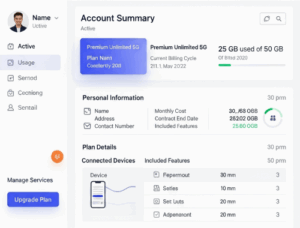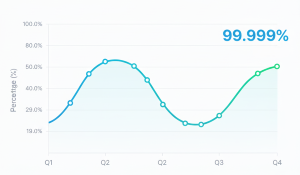


Alepo's Subscriber Data Management consolidates HLR, HSS, and UDR functionality into one scalable platform that serves as the authoritative source for subscriber information.
Alepo's Subscriber Data Management simplifies operations while accelerating 5G migration and enabling rapid service innovation through centralized subscriber profiles.
Consolidate multiple subscriber databases into one platform, reducing integration complexity and maintenance overhead significantly.
Enable seamless network evolution with unified data supporting both legacy and next-generation services simultaneously.
Accelerate service launches through open APIs and centralized profiles that eliminate complex data integration projects.
Reduce infrastructure costs through cloud-native deployment while minimizing operational overhead with automated data management.


Consolidate HLR, HSS, and UDR functionality with real time synchronization ensuring data consistency across all access points.
Microservices architecture enables independent scaling of data functions with dynamic capacity adjustment based on subscriber growth.
Full 3GPP R15, R16, and R17 compliance with support for all standard interfaces including Gr, S6a, S6d, N8, N10, N12, and N13.
Built-in analytics provide subscriber behavior insights, predictive modeling, and revenue intelligence for optimization opportunities.
Alepo's SDM delivers carrier-grade performance while seamlessly integrating with network functions from all major vendors.


We understand the need for telcos to be focused on subscribers’ demands and come up with innovative services that resonates with their digital lifestyles. With Alepo as our technology partner, we are now able to deliver unprecedented quality and value of services to our subscribers based on their needs and lifestyles in real time.
Consolidate subscriber profiles across all network functions with a cloud-native platform that simplifies 5G migration, enables rapid service innovation, and reduces operational overhead.
Native multi-generation support with unified data models simplifies operations and accelerates service innovation versus traditional systems.
Analytics-driven insights and predictive capabilities enable proactive optimization, churn prevention, and revenue enhancement through data-driven decisions.
Elastic scaling and multi-cloud deployment with modern DevOps practices reduce costs and improve agility versus hardware-constrained solutions.
Single platform consolidates HLR, HSS, and UDR functions rather than requiring multiple systems and complex integrations.